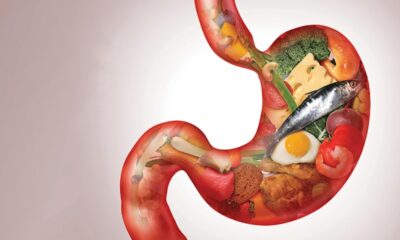Irregular bowel movements could lead to bigger health issues over time, according to a new study of bowel frequency among 1,400 healthy adults.
The study found that people who defecate one to two times per day may have healthier gut bacteria than those who go more or less often. Meanwhile, participants with greater or lesser bowel frequency – those with constipation or diarrhea — had higher levels of blood markers associated with kidney, liver, and neurodegenerative diseases…Click Here To Continue Reading>> …Click Here To Continue Reading>>
“We’re arguing that over time, exposure to these molecules at higher levels in the blood is a danger,” said study author Sean Gibbons, PhD, a microbiome researcher and associate professor at the Institute for Systems Biology, a nonprofit biomedical research organization in Seattle. “People should manage bowel movement frequency to be in a more normal range to avoid chronic exposure that could predispose them to some of these chronic diseases.”
That’s because if waste takes too long, or not long enough, to travel through the gut, the timing can impact the way the gut microbiome – the community of microbes that lives in your intestines – uses nutrients from your food, leading to byproducts that can be detrimental to health.
“The metabolism associated with our gut microbiome, we’re coming to realize, is one of the major ways the microbiome communicates with the rest of our body,” said Christopher J. Damman, MD, a clinical associate professor of gastroenterology at University of Washington Medicine, who was not involved with the study.
Previous studies have suggested that the way gut microbes break down food — and the molecules, or metabolites, they produce in the process — can influence a person’s risk of heart disease, diabetes, liver disease, high blood pressure, and insulin resistance.
“This is a growing theme within microbiome science,” Damman said, “and actually helps connect the dots, figuratively and literally, between how an ecosystem of microbial organisms in the gut could have so many far-reaching consequences.”
Why Poop Patterns Matter
Your gut microbiome helps you more fully make use of the energy from food. It can digest fiber, for example, making it available to us when we otherwise could not access it on our own.
Microbes use that fiber to create short chain fatty acids, which are healthy for you because they reduce inflammation. But if the waste travels too fast or too slow, the microbes can’t do their job.
On the slow end of the spectrum are people with constipation, defined in the study as one or two bowel movements a week. These participants had higher blood levels of p-cresol-sulfate and indoxyl sulfate — substances linked to kidney damage — than those who defecated more often.
“If poop takes too long to make it through the gut, you sort of exhaust all of those fibers, and the microbes switch to fermenting protein,” said Gibbons. When microbes ferment protein, “they start to produce these toxins like p-cresol sulfate or indoxyl sulfate.”
These toxins have previously been linked to chronic kidney disease as well as neurodegenerative diseases like Parkinson’s and Alzheimer’s. In study participants, elevated indoxyl sulfate was associated with reduced estimated glomerular filtration rate, a marker of the kidneys’ ability to filter waste.
Gut bacteria deprived of fiber may also feed on the layer of mucus that lines the gut, eroding it and allowing bacteria and toxic metabolites to pass through to other organs.
When waste moves too fast — as with diarrhea — loose stools wash out your colon before the bacteria can finish breaking down fiber into protective short-chain fatty acids, potentially leading to inflammation. READ FULL STORY HERE>>>CLICK HERE TO CONTINUE READING>>>
People in the study who went four or more times per day had higher blood levels of markers associated with liver disease risk, including bilirubin, the yellowish pigment produced when your liver breaks down red blood cells. High bilirubin levels in blood can be a sign of liver or bile duct dysfunction, Gibbons said.
What You Can Do to Balance Your Gut
If you have fewer than three bowel movements per week or more than three per day, talk to your doctor about strategies to get regular, the researchers recommended.
“I think that clinicians should take bowel movement frequency more seriously as a clinical factor that needs to be managed actively,” said Gibbons.
A simple place to start is the produce aisle.
“Eating more vegetables and more fruit — whole foods – that was associated with having a more normal range of bowel movement frequency,” said Gibbons.
These foods are rich in fiber, which regulates bowel habits, and polyphenols, which nourish the helpful gut bacteria. The U.S. government’s dietary guidelines recommend eating 14 grams of fiber for every 1,000 calories, or about 28 grams per day. Any fruits and vegetables can help: An avocado has 9 grams of fiber, a cup of raspberries has 8 grams, a banana has up to 5 grams, and a cup of broccoli has 2 grams.
Keep in mind that when you start eating more fiber, symptoms like gas and diarrhea might temporarily get worse as your gut bacteria adjust. “In some cases, it’s just a matter of calibration,” Damman said.
But if problems persist or you experience a sudden, unexplained shift in bathroom habits, talk to your health care provider, said Damman.
One reason Gibbons began studying this subject is because he and a colleague each had a relative who’d been diagnosed with Parkinson’s disease after years of chronic constipation.
“Our families’ experience is that both of these people experienced decades-long chronic constipation before they ever had any symptoms of neurodegeneration,” Gibbons said. “This is well known in the literature … people who end up with Parkinson’s are much more likely to have had chronic constipation.”
However, those studies can’t prove that chronic constipation actually causes Parkinson’s – they can only demonstrate a link.
“Maybe the disease itself can affect bowel motility,” Gibbons speculated. “A lot of neurotransmitter stuff can affect how fast you poop. But we suspected that even in a healthy population, the microbial metabolism that could be driving some of this organ damage is in a forward direction actually causally affecting the body.”
Next, Gibbons hopes to obtain funding for more research to monitor how people respond to interventions to manage irregular bowel patterns.


 SPORTS11 months ago
SPORTS11 months ago
 HEALTH & LIFESTYLE11 months ago
HEALTH & LIFESTYLE11 months ago
 METRO8 months ago
METRO8 months ago
 IN-THE-NEWS10 months ago
IN-THE-NEWS10 months ago
 SPORTS11 months ago
SPORTS11 months ago
 HEALTH & LIFESTYLE11 months ago
HEALTH & LIFESTYLE11 months ago
 SPORTS8 months ago
SPORTS8 months ago
 METRO10 months ago
METRO10 months ago


